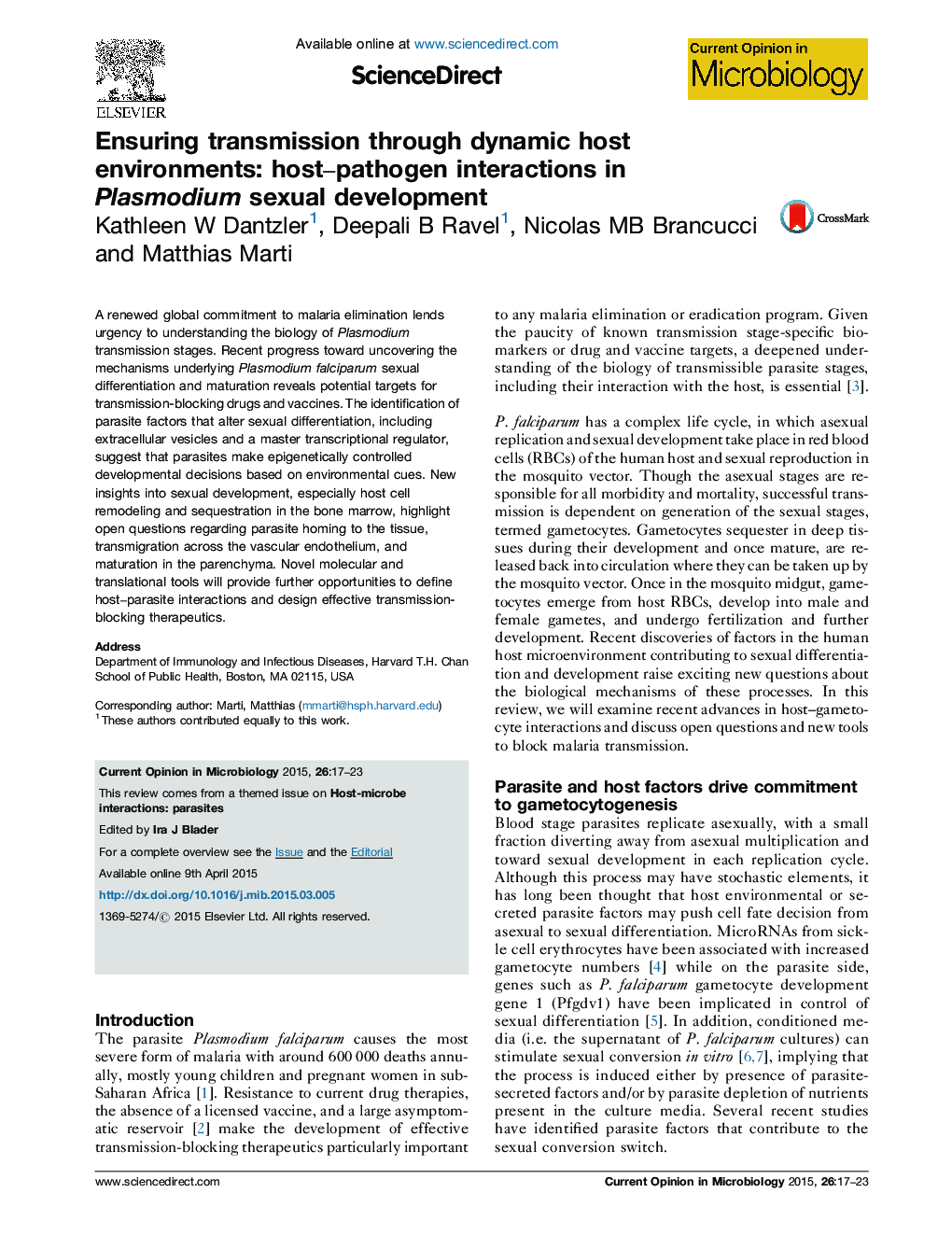| Article ID | Journal | Published Year | Pages | File Type |
|---|---|---|---|---|
| 3399029 | Current Opinion in Microbiology | 2015 | 7 Pages |
•Plasmodium falciparum sexual conversion is regulated by epigenetic control of AP2-G.•Extracellular vesicles and other environmental factors may alter sexual conversion.•Gametocytes are enriched in the bone marrow parenchyma.•Insights into sexual differentiation and development reveal potential drug targets.•New tools will enable better understanding of parasite–host interactions.
A renewed global commitment to malaria elimination lends urgency to understanding the biology of Plasmodium transmission stages. Recent progress toward uncovering the mechanisms underlying Plasmodium falciparum sexual differentiation and maturation reveals potential targets for transmission-blocking drugs and vaccines. The identification of parasite factors that alter sexual differentiation, including extracellular vesicles and a master transcriptional regulator, suggest that parasites make epigenetically controlled developmental decisions based on environmental cues. New insights into sexual development, especially host cell remodeling and sequestration in the bone marrow, highlight open questions regarding parasite homing to the tissue, transmigration across the vascular endothelium, and maturation in the parenchyma. Novel molecular and translational tools will provide further opportunities to define host–parasite interactions and design effective transmission-blocking therapeutics.
